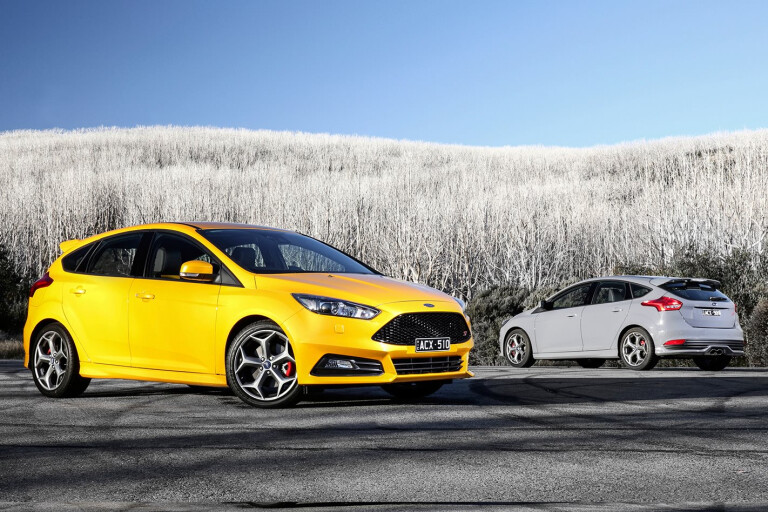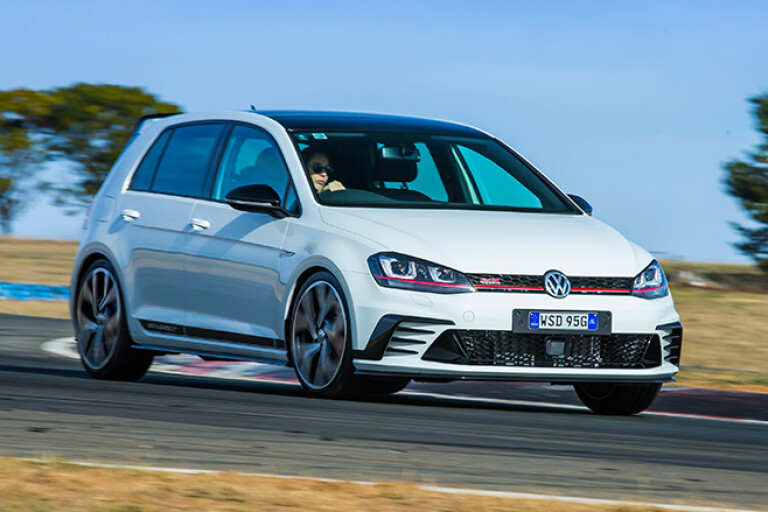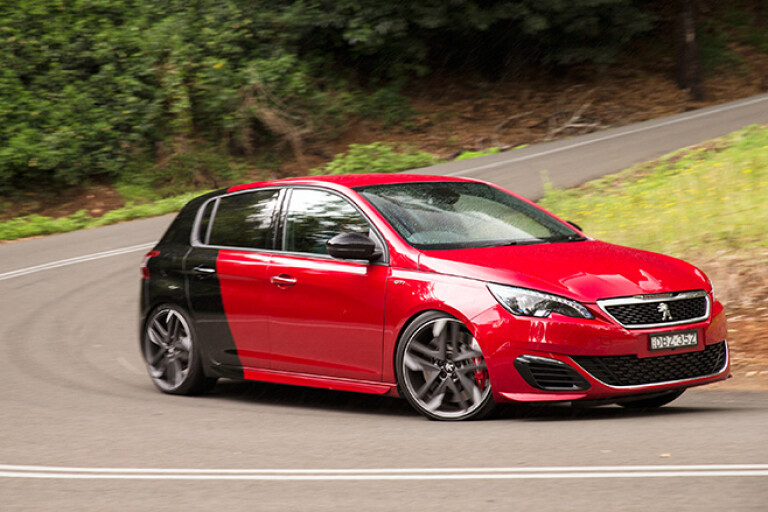
The options have also been increasing since the original hot-hatch, the Volkswagen Golf GTI, returned to form with the Mark V model of 2005. Here, WhichCar offers a guide to three stand-out members of the breed, ranging between $38,990 and $49,990.
FORD FOCUS ST
Priced from $38,990
The all-wheel-drive Focus RS has been hogging much of the hot-hatch limelight in 2016, yet for those with smaller budgets the ST is more than a mere consolation performance five-door.
After a 2012 release for the current generation, there was a 2015 update that brought changes such as tweaked chassis and, perhaps more noticeable for more buyers, a revised interior.
The improved dash design was not only smarter to look at but also smarter to use thanks to the more intuitive Sync 2 infotainment system and 8.0-inch touchscreen. And if desired, a $2000 Technology Pack offers a bunch of driver aids – including blind spot monitoring, autonomous low-speed braking, lane departure warning and auto high beam.
The Focus ST responds faithfully to the driver’s inputs to provide confident fun on winding roads, with the intimate Recaro sports seats holding occupants in place. The 184kW/345Nm 2.0-litre turbocharged four-cylinder is a brilliantly flexible performer for all types of driving, even if the power can occasionally overwhelm the front wheels – resulting in some steering-wheel-tugging torque steer. The steering is otherwise enjoyably quick and well weighted.
There’s disappointment if you’re after an automatic gearbox as the ST comes with a six-speed manual only, but if you don’t mind a stick-shift this Focus provides a thrill for a relatively small bill.
VOLKSWAGEN GOLF GTI
Priced from $41,340
For more than a decade now, the Golf GTI has been the benchmark hot-hatch in terms of perfecting the balance between ownership and driving satisfaction.
It’s still reasonably priced in base form, is superbly refined, and is great to steer. While you need the more expensive and more powerful Performance variant to get closer to the Focus ST’s 184kW, the 162kW GTI is still capable of matching the Ford’s 6.5-second 0-100km/h sprint.

The VW’s 2.0-litre turbo engine also boasts good driveability and some delightful exhaust noises to match – emphasised most when paired with the six-speed DSG auto rather than six-speed manual.
The steering isn’t quite as deeply involving as the Ford’s but it’s more direct than a regular Golf’s and nothing but smooth.
If you’re (understandably) tempted by a GTI, however, we’d recommend holding off until mid 2017. That’s when a major update for the whole Golf range arrives in Australia. GTI models not only gain more power – up to 169kW for the standard model, up from 169 to 180kW for the Performance – there’s a new seven-speed DSG and a cabin shake-up that will make the Golf’s classy interior even classier. (Read WhichCar’s Quick Guide to the 2017 VW Golf.)
PEUGEOT 308 GTi 270
Priced from $49,990
A rival GTi – albeit with a lower-case i – arrived in late 2015 from Peugeot, though a year later the French brand axed the most accessible variant, the $44,990 250.

That leaves the somewhat expensive $49,990 270, though there are some equipment/feature highlights such as LED lights front and rear, navigation and 9.7-inch colour touchscreen, digital G-force monitoring, Peugeot Sport bucket seats with massage function, 19-inch alloy wheels with performance-focused Michelin tyres, large brakes, and a Torsen limited-slip differential that helps get the GTi’s 200kW of power to the ground via the front wheels.
Hard to believe, but the highest output here comes from the smallest engine of the group – a turbocharged four-cylinder just 1.6 litres in size. Combined with a kerb weight of just 1205kg, the punchy Peugeot is half-a-second quicker to 100km/h from standstill: 6.0 seconds. That helps it to feel nimble on the road, too, while the tyres provide high levels of grip.
Downsides include some mild torque steer, an engine that could sound racier (despite an audio-amplification feature), and the lack of an auto alternative to the six-speed manual. Yet this is another entertaining Peugeot – to follow the smaller 208 GTi – and the package is completed by the stylishly minimalistic cabin.


COMMENTS